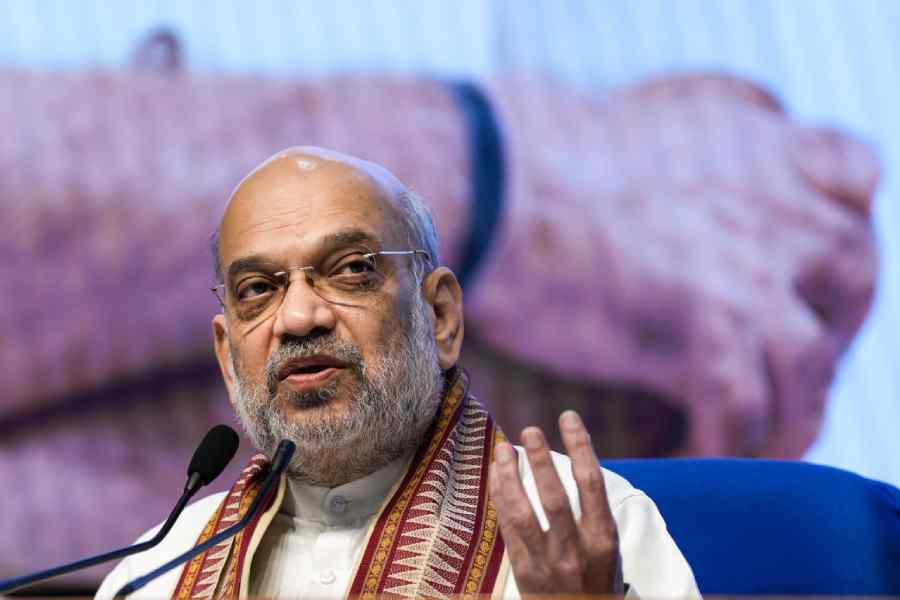Union home minister Amit Shah on Tuesday did not rule out the possibility of the Narendra Modi government accepting the Opposition’s relentless demand for a caste-based enumeration, saying that a decision would be made public when the Centre announces the decadal census that is pending since 2021.
Asked specifically whether the government was considering the demand to conduct a nationwide caste census along with the decadal exercise, Shah said: “Jab bhi census ke liye ghoshna karenge, sabhi chizon ko sarwajanik karenge (When we announce the census, all these things will be made public).”
“We will announce it soon,” the home minister said in response to a question on conducting the decadal census. Shah was accompanied by information and broadcasting minister Ashwini Vaishnaw at a news conference to mark 100 days of the third term of the Narendra Modi government.
The demand for a caste census has gained momentum with NDA allies JDU and LJP joining the Opposition’s aggressive pitch for it, led by leader of the Opposition Rahul Gandhi. Ideologically, the BJP and the Sangh Parivar are against a caste-based census as it runs against their core agenda of bringing different castes under the wider Hindutva umbrella.
The RSS has reluctantly backed the proposal that a caste count be done but cautioned that the data should be used only for “welfare activities” and not politicking, stressing that a caste census could endanger the “unity and integrity of the Hindu society”.
The last decadal census was conducted in India in 2011 and the next one was supposed to take place in 2021,but was postponed indefinitely because of the Covid-19outbreak.
In the absence of fresh data, government agencies are still formulating policies and allocating subsidies based on figures from the 2011 census.
The census enumeration can only begin a few months after receiving data from states. Also, the census enumeration will be preceded by a house-listing exercise that will include the preparation of a National Population Register (NPR).
Before every census, states are required to provide information to the Registrar General of India (RGI) on changes in the number of notified districts, villages, towns and other administrative units such as tehsils, talukas and police stations since the last census.
The boundaries of administrative units are frozen three months before the commencement of the census. In this period, the data is compiled and shared with the RGI which begins its preparatory work for the census.
Sources said the entire census and the NPR exercise were likely to cost the government more than ₹12,000 crore. This will be the first digital census giving the citizens an opportunity to self-enumerate.
The NPR has been made compulsory for all citizens who want to exercise the right to fill the census form on their own rather than through government enumerators. For this, the census authority has designed a self-enumeration portal, which is yet tobe launched.
During self-enumeration, Aadhaar or mobile numbers will be mandatorily collected.
The Office of the Registrar General and Census Commissioner has prepared 31 questions to be asked during the census. Those questions include whether a family has a telephone, Internet connection, mobile or smartphone, bicycle, scooter or motorcycle, car, jeep or van.
The citizens will also be asked what cereals they consume at home, the main sources of drinking water and lighting, access to toilet, type of toilet, waste-water outlets, availability of bathing facilities, availability of kitchen and LPG/ PNG connection, the main fuel used for cooking, availability of radio, transistor, or television.
The citizens will also be asked about the predominant materials used to build the floor, walls and roof of their house, the condition of the house, the total number of individuals in the household, whether the head of the household is a woman, whether the head of the household belongs to the Scheduled Caste or Scheduled Tribe, the number of dwelling rooms exclusively in possession of the household, and the number of married couple(s) in the household, among others.











